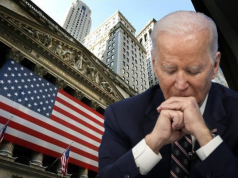US , Mar 10, 2025 Global financial markets have been on edge, grappling with the tangible effects of escalating trade tensions. The phrase “Trade War Fears” has become a constant refrain in financial news, reflecting the unease surrounding the economic consequences of protectionist policies. Specifically, tariffs implemented under President Trump, met with retaliatory measures from the European Union, have sent ripples through global indices, most notably the S&P 500 and the Dow Jones Industrial Average.
The core of this market turbulence stems from the inherent uncertainty that trade wars introduce. In a globalized economy, supply chains are intricately woven, and any disruption can have far-reaching implications. The tariffs, intended to protect domestic industries, have instead sparked retaliatory tariffs, leading to a tit-for-tat escalation. This exchange not only increases the cost of goods but also damages the stability of international trade relations.
Investors, seeking predictability, react negatively to this volatility. The fluctuations in the S&P 500 and Dow Jones serve as visible indicators of this market anxiety. Each announcement of new tariffs or retaliatory actions results in sharp, often unpredictable swings in these indices. The potential for a sustained trade conflict introduces significant risk, leading to portfolio adjustments and a shift toward safer investment options.
The impact extends beyond mere market figures. Real economic consequences are felt in businesses that rely on international trade. Companies faced with increased import costs may reduce investments, cut jobs, or pass the cost onto consumers, leading to inflation. Moreover, the uncertainty surrounding trade policy can deter long-term investment, which is vital for economic growth.
The European Union’s response to the US tariffs has played a significant role in exacerbating these market fears. The retaliatory tariffs on American goods underscore the potential for a prolonged trade dispute, further eroding investor confidence. In a world where economies are interconnected, the domino effect of these actions can amplify the negative impact, extending well beyond the initial sectors targeted by the tariffs.
Moving forward, the resolution of these trade tensions will be critical in restoring market stability. Negotiations and diplomatic solutions are essential to mitigate the long-term economic damage. Investors and businesses alike will continue to closely monitor any developments, with the hope that a return to more predictable and cooperative trade policies can alleviate “Trade War Fears” and stabilize the global financial landscape.













